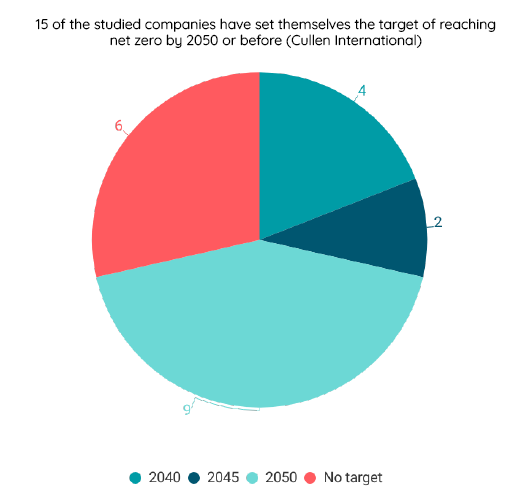New research by Cullen International shows that 19 out of 21 researched transport and logistics operators publish regular data on their greenhouse gas emissions. However, only 11 of the operators publish data on emissions arising from activities occurring in their supply chain (scope 3).
Around 75% of the companies have set themselves a target year to become carbon neutral. Of the companies studied, Maersk is the only operator whose net zero target has been approved by the Science Based Targets initiative, though several other operators have committed to submitting targets to the organisation for approval.

Cullen International’s research shows that the operators take different approaches to reduce their emissions.
Six of the studied companies have announced targets to increase their use of renewable electricity, with Deutsche Bahn, DFDS Kuehne & Nagel, Maersk, and UPS aiming to eventually source all of their energy from renewable sources.
In addition, 17 companies have announced targets to make their air, maritime and road fleets more sustainable by switching from traditional fossil fuels to sustainable alternative fuels. Many operators also aim to employ a greater number of electric trucks and vans for road transport.
These are some of the conclusions from Cullen International's new benchmark on sustainability targets for transport and logistics operators.
For more information and access to the full research, please click on “Access the full content” - or on “Request access”, in case you are not subscribed to our Sustainability service.
more news
19 December 25
CSRD transposition: Belgium, Denmark, Finland and Slovenia transpose the “stop-the-clock” directive
Cullen International’s updated benchmark tracks the progress made by the 27 EU member states in transposing the CSRD and the related “stop-the-clock” directive.
19 December 25
Global trends in AI regulation
Our latest Global Trends benchmark compares policies and regulations on artificial intelligence (AI) across 14 jurisdictions around the world.
19 December 25
Implementation of European Media Freedom Act: general overview in 12 EU member states
Our new Media benchmark shows if there are initiatives/rules in the selected countries which aim to put into application the EU Media Freedom Act (EMFA). If yes, it describes the scope of the main measures proposed. The benchmark also provides information on the next legislative or regulatory steps.